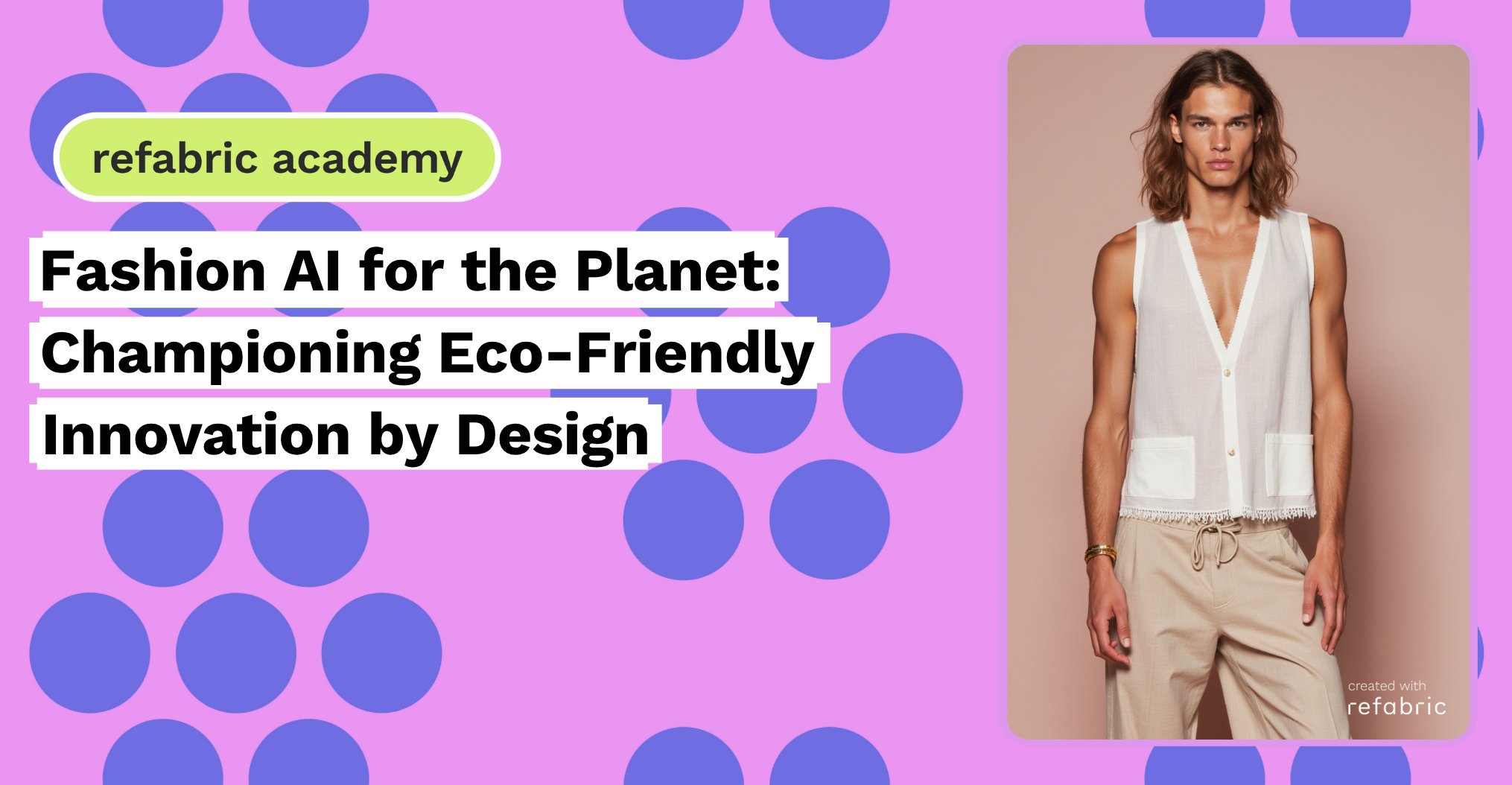Fashion AI is driving a powerful shift toward sustainability by helping designers, brands, and manufacturers make smarter, greener choices from concept to production. As the fashion industry grapples with growing environmental concerns, fashion AI emerges not only as a design tool but as a catalyst for eco-conscious innovation.
Fashion AI and the New Rules of Sustainability
One of fashion AI’s most meaningful contributions to sustainability is its ability to minimize material waste before a garment is ever produced. By analyzing past design data, material usage patterns, and consumer preferences, AI can predict which styles are more likely to be successful. This means fewer unsold items, less overproduction, and more efficient use of resources.
Fashion AI also supports zero-waste pattern making by helping designers create layouts that maximize fabric usage. Advanced simulation tools can model how garments will look and fit without the need for physical prototypes, drastically reducing fabric waste during sampling and development stages.
Intelligent Sourcing for Cleaner Supply Chains
Beyond design, fashion AI is transforming the way materials are sourced. AI-powered platforms can scan supplier databases to identify environmentally responsible materials that meet a brand’s ethical standards. These tools assess a range of criteria, from carbon footprint to water usage and chemical processing, guiding designers toward more sustainable fabric options.
In addition, fashion AI can map out supply chains to detect inefficiencies and highlight opportunities to lower emissions, improve logistics, and reduce energy consumption. These insights help brands prioritize local or low-impact sourcing without compromising on quality or aesthetics.
Designing for Longevity and Circularity
Sustainable fashion is not just about production, it’s also about longevity. Fashion AI helps extend the life cycle of garments by designing with durability in mind. By learning which materials and construction techniques hold up best over time, AI can suggest modifications that improve a garment’s resilience and wearability.
What’s more, fashion AI enables circular design practices. For example, it can help designers select materials that are easier to recycle, suggest modular design features that allow for easy repairs, or recommend biodegradable components. These decisions can be embedded in the design process from the very beginning, supporting the long-term vision of a circular economy.
Consumer Insights that Drive Conscious Choices
Fashion AI also empowers brands to better understand and anticipate shifts in consumer values. Today’s customers care more than ever about how their clothes are made. AI tools can analyze trends in online conversations, reviews, and social sentiment to help brands respond to growing demand for transparency, ethical practices, and eco-friendly innovation.
These insights influence not just what brands design but how they communicate. With the help of fashion AI, marketing teams can craft messages that resonate with sustainably minded audiences, showcasing the environmental impact of each product in compelling, data-backed ways.
Pioneering a Greener Future, One Algorithm at a Time
The fashion industry has long been criticized for its environmental impact, but fashion AI offers a roadmap to do better. By embedding sustainability into the entire design and production pipeline, AI doesn’t just optimize, it revolutionizes how brands think about their environmental footprint.
For emerging designers and global brands alike, fashion AI provides the tools to reduce waste, conserve resources, and create clothing that supports a healthier planet. It also opens the door to greater experimentation with sustainable materials, circular design strategies, and smarter sourcing practices.
Fashion AI is not just changing how we design, it’s changing what we value. In the age of conscious consumerism, the brands that embrace AI-powered sustainability will not only lead the industry, they’ll help shape a greener, smarter, and more responsible future for fashion worldwide and generations to come.
